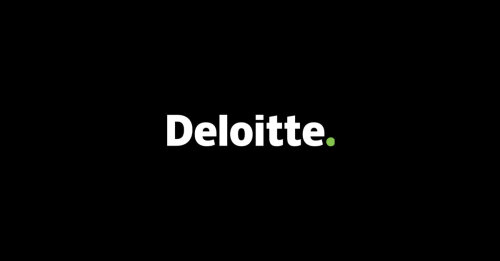Best Fintech Lawyers in Oslo
Share your needs with us, get contacted by law firms.
Free. Takes 2 min.
List of the best lawyers in Oslo, Norway
About Fintech Law in Oslo, Norway
Oslo, Norway, has positioned itself as a significant hub for innovation in the financial technology (Fintech) sector. The city thrives on a collaborative environment fostering innovation, spearheaded by both private entities and supportive government initiatives. With a robust regulatory framework, Oslo offers an attractive environment for Fintech startups and established companies alike. Fintech law in Oslo encompasses a wide array of regulations and guidelines that govern financial services and technologies, ensuring consumer protection, financial stability, and fostering innovation.
Why You May Need a Lawyer
Navigating the complex landscape of Fintech law can be challenging. Here are common situations where you might need legal assistance:
- **Regulatory Compliance**: Ensuring that your Fintech operation complies with local and international laws is crucial. Non-compliance can result in hefty fines or shutdowns.
- **Licensing**: Many Fintech activities require specific licenses. A lawyer can assist in the application process and ensure all criteria are met.
- **Intellectual Property**: Protecting your technological innovations and trademarks is vital for maintaining a competitive edge.
- **Data Protection**: With stringent data protection laws like GDPR, ensuring your company handles data correctly is crucial.
- **Contract Drafting and Reviewing**: Whether dealing with clients, partners, or employees, having solid contracts can prevent future disputes.
Local Laws Overview
The legal framework governing Fintech in Oslo is extensive and multifaceted. Here are key aspects:
- **Financial Supervision Act**: Oversees the activities of financial institutions, ensuring they operate within the legal framework.
- **Payment Services Act**: Regulates entities that offer payment services, requiring them to obtain necessary licenses and adhere to operational guidelines.
- **Personal Data Act**: Enforces GDPR regulations to protect personal data integrity and privacy.
- **Anti-Money Laundering Act**: Sets out the requirements for Fintech companies to prevent money laundering and terrorist financing.
- **E-Money Regulations**: Governs the issuance and management of electronic money, ensuring the stability and security of digital transactions.
Frequently Asked Questions
1. What regulatory bodies oversee Fintech in Oslo?
The Financial Supervisory Authority of Norway (Finanstilsynet) is the primary regulatory body overseeing Fintech operations.
2. Do I need a license to operate a Fintech company in Oslo?
Yes, many Fintech activities require specific licenses, such as those related to payment services, e-money issuance, and investment services.
3. How do GDPR regulations affect my Fintech business?
GDPR requires that you handle personal data responsibly, ensure data protection, and obtain explicit consent from users for data processing activities.
4. What are the penalties for non-compliance with Fintech laws?
Penalties can range from fines to business shutdowns and legal actions, depending on the severity of the non-compliance.
5. How can I protect my Fintech intellectual property?
Register your patents, trademarks, and copyrights to legally protect your technological innovations and brand.
6. Are there incentives for Fintech startups in Oslo?
Yes, there are various incentives including governmental grants, access to innovation hubs, and support from incubator programs.
7. How does Anti-Money Laundering (AML) law affect my Fintech business?
AML laws require your business to implement measures to detect and report money laundering activities to prevent financial crimes.
8. What are the data storage requirements under local laws?
Data must be stored securely, ensuring encryption and access controls in line with GDPR and local data protection regulations.
9. How can I ensure my contracts are legally sound?
Working with a lawyer to draft and review contracts ensures they comply with applicable laws and protect your interests.
10. Can I offer cross-border Fintech services from Oslo?
Yes, but you must comply with both Norwegian laws and the regulations of the countries you are serving, especially within the EEA.
Additional Resources
- **Financial Supervisory Authority of Norway (Finanstilsynet)**: Regulatory body overseeing financial markets and institutions.
- **Norwegian Data Protection Authority (Datatilsynet)**: Enforces data protection and privacy laws, including GDPR.
- **Innovation Norway**: Governmental body that provides support and resources for startups and innovation-driven enterprises.
- **Norwegian Centre for Information Security (NorSIS)**: Offers guidance on cybersecurity measures pertinent to Fintech companies.
- **Oslo Fintech Hub**: A community providing networking opportunities, resources, and support for Fintech enterprises.
Next Steps
If you need legal assistance in the Fintech field, follow these steps:
- **Identify Your Needs**: Understand the specific legal issues you are facing, whether it is licensing, compliance, or data protection.
- **Consult a Specialist**: Reach out to legal professionals who specialize in Fintech law to get expert advice tailored to your needs.
- **Gather Documentation**: Compile all necessary documents, such as business plans, data processing agreements, and existing contracts, to provide comprehensive information to your lawyer.
- **Stay Informed**: Keep abreast of any regulatory changes that may affect your business by subscribing to Fintech news sources or joining related local organizations.
- **Develop a Compliance Plan**: Work with your lawyer to create and implement a plan ensuring your business adheres to all relevant laws and regulations.
Lawzana helps you find the best lawyers and law firms in Oslo through a curated and pre-screened list of qualified legal professionals. Our platform offers rankings and detailed profiles of attorneys and law firms, allowing you to compare based on practice areas, including Fintech, experience, and client feedback.
Each profile includes a description of the firm's areas of practice, client reviews, team members and partners, year of establishment, spoken languages, office locations, contact information, social media presence, and any published articles or resources. Most firms on our platform speak English and are experienced in both local and international legal matters.
Get a quote from top-rated law firms in Oslo, Norway — quickly, securely, and without unnecessary hassle.
Disclaimer:
The information provided on this page is for general informational purposes only and does not constitute legal advice. While we strive to ensure the accuracy and relevance of the content, legal information may change over time, and interpretations of the law can vary. You should always consult with a qualified legal professional for advice specific to your situation.
We disclaim all liability for actions taken or not taken based on the content of this page. If you believe any information is incorrect or outdated, please contact us, and we will review and update it where appropriate.









